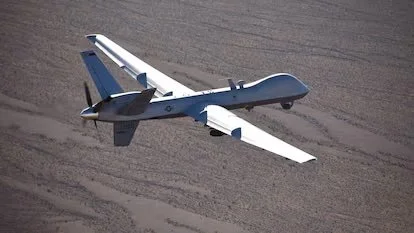U.S.-Mexico Security cooperation grows
Mexico and the U.S. pledge closer cooperation against cartels following Senator Marco Rubio’s visit.
Joint operations target drug trafficking, arms smuggling, and migrant flows across the shared border.
Mexican officials stress sovereignty, rejecting any perception of U.S. military presence on national soil.
Critics warn cooperation could fuel nationalist backlash and strain bilateral ties.
Security agenda comes ahead of 2026 U.S. elections and USMCA renegotiations.
Mexico City, September 22 — Mexico and the United States have announced a new push to deepen security cooperation, focusing on combating drug cartels and cross-border crime, even as Mexican leaders warn against undermining national sovereignty.
The announcement follows the recent visit of U.S. Senator Marco Rubio to Mexico City, where he met with President Claudia Sheinbaum and members of her security cabinet. Both sides underscored the urgency of tackling fentanyl trafficking, firearms smuggling, and migrant flows that have strained relations in recent years.
Joint Operations, Shared Challenges
Officials said the two governments are expanding intelligence-sharing, coordinating patrols in high-risk regions, and launching joint initiatives along the 3,145-kilometer border. U.S. agencies will provide technological support, including surveillance equipment and training for Mexican law enforcement.
“Our security depends on collaboration,” said Mexican Security Minister Rosa Ibarra. “But this collaboration must respect Mexico’s sovereignty and our constitutional limits.”
Washington has pressed Mexico to step up efforts against synthetic drug networks, which U.S. officials blame for tens of thousands of overdose deaths annually. At the same time, Mexican authorities want greater U.S. accountability for the flow of American-made weapons southward, fueling cartel violence.
Sovereignty at the Forefront
While Sheinbaum’s government has committed to cooperation, it has firmly rejected suggestions of U.S. troops operating on Mexican soil. “There will be no foreign military presence in Mexico,” Sheinbaum said. “Our cooperation is based on respect, not intervention.”
The sovereignty issue is politically sensitive. Nationalist voices across Mexico’s political spectrum have long resisted what they see as U.S. intrusion, citing a history of interventions from the 19th century through the “Plan Mérida” era. Analysts warn that any misstep could spark backlash at home.
“Security cooperation is necessary, but it’s a fine line,” said political analyst Fernando Dworak. “The Mexican government must show it’s in charge while still delivering results to the U.S.”
Impact on Border Communities
Border regions are already seeing heightened activity. Residents in northern states like Tamaulipas and Sonora report increased patrols, roadblocks, and inspections. Local business groups support efforts to curb violence but worry about disruptions to trade, which is vital for regional economies.
“We need security to attract investment, but checkpoints and delays also hurt commerce,” said Juárez business owner Ana Torres. “Authorities must find the right balance.”
Human rights groups caution that intensified operations could worsen abuses against migrants. Mexico remains a key transit route for people fleeing poverty and violence in Central America, with growing numbers from South America, the Caribbean, and even Africa.
Political Calculations
The renewed security agenda also has a political dimension. With the 2026 U.S. elections approaching, Washington is keen to show progress on border control and drug interdiction. Mexico, meanwhile, is positioning itself ahead of sensitive USMCA renegotiations, where cooperation on security may help ease frictions on trade and tariffs.
“The subtext is clear,” said international relations professor Laura Hernández. “Security cooperation is not just about crime—it’s about managing the broader U.S.–Mexico relationship.”
Looking Ahead
For now, both governments present the partnership as a win-win. Yet lingering mistrust and the risk of nationalist backlash could limit how far cooperation can go.
As one Mexico City columnist put it, “The U.S. wants results. Mexico wants respect. The question is whether both can be delivered at once.”




